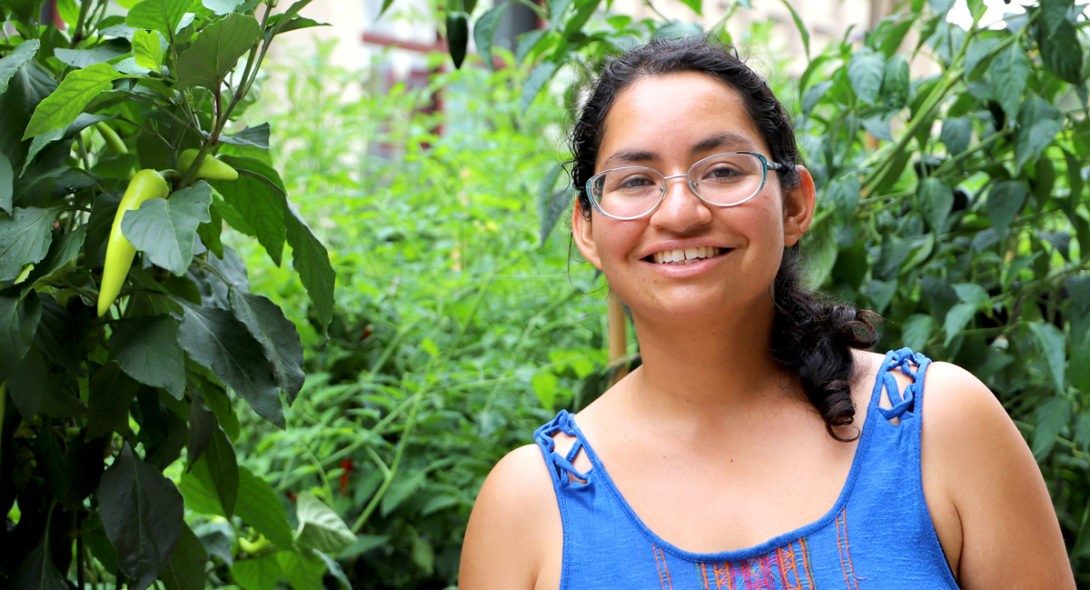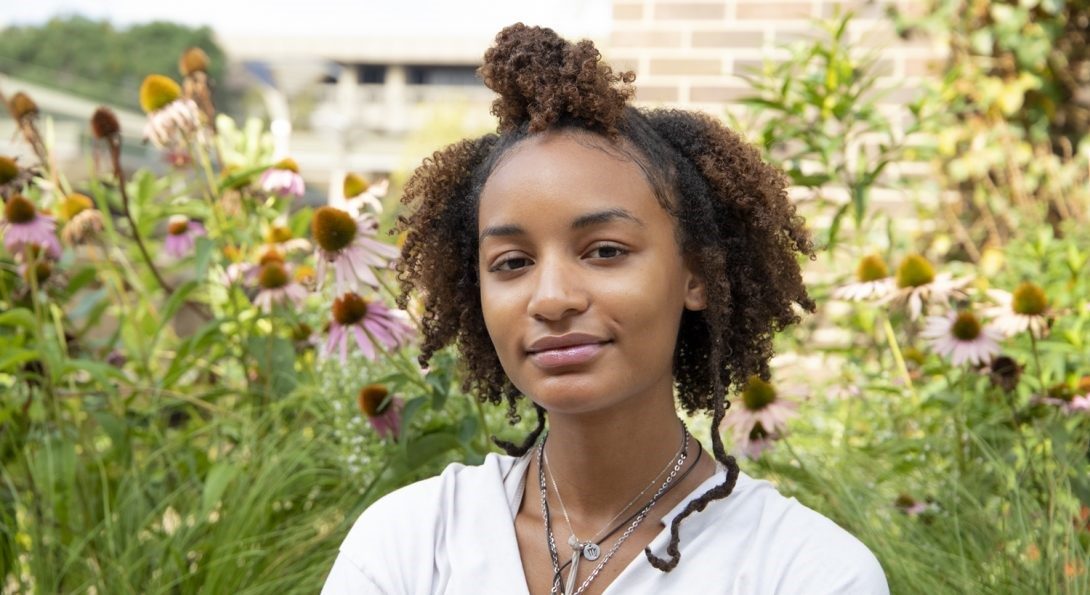Sowing the Seeds of Justice
Heritage Garden 1 Heading link

Every plant has a story to tell. The transcontinental migration of a monarch butterfly begins with an egg on the leaf of a milkweed plant in Chicago. This is just one of the many stories told by UIC’s Heritage Garden internship program, a project of the Centers for Cultural Understanding and Social Change (CCUSC) with infrastructure provided by the UIC Latino Cultural Center.
The garden’s internship program brings together diverse students to explore the three principles of cultural diversity, environmental sustainability and social justice, according to Ireri Carrasco BA ’09, Heritage Garden educator.
Under Carrasco’s guidance, interns care for multiple garden sites around UIC campus, host a seed swap and visit community gardens across Chicago, such as the First Nations Community Garden and Global Garden Refugee Training Farm in Albany Park and Semillas de Justicia Garden in Little Village. Students learn to support and promote existing organizations and value the knowledge already within a community when seeking solutions to problems.
“I’ve gotten a new sense of belonging and confidence to go to these spaces and show an appreciation for other people’s cultures,” says senior Mechiya Jamison, who has been part of the program for two years. “I never had the opportunity to be intimate with other cultures before this internship.”
Carrasco quote Heading link
Seeing the students come out feeling more empowered, being comfortable asking for support when they see something that needs to be changed, that’s a really beautiful outcome for an internship program.
Heritage Garden 2 Heading link

Carrasco notes that the seed swap, field trips and on-campus gardening were suspended this summer due to the pandemic. They encouraged interns to grow plants at home and explore their identities and ancestry by collecting family stories around plants and food. Students engaged with family members who spoke different languages, and one even traced recipe ingredients to different places in their family’s migration.
Jamison visited her grandmother, who grew up on a farm in Mississippi. Her grandmother cooked cabbage for her. “It was my favorite dish as a kid. It make me think of my dad and our history in the South. I don’t want to lose that. I’m making my own relationship with cabbage,” she says.
As she studies urban planning and public policy at UIC, Jamison brings her knowledge from the Heritage Garden to her work in the classroom and in other internships, like the one she completed with the Illinois Environmental Council. She says the Heritage Garden gave her a greater understanding of the struggles people face and how even the environmental movement has a racist history. It taught her to think analytically and question answers, but most of all to have confidence in herself.
“Seeing the students come out feeling more empowered, being comfortable asking for support when they see something that needs to be changed, that’s a really beautiful outcome for an internship program,” says Carrasco. The connections between people and plants are a powerful tool for advocacy and social justice.
When a Heritage Garden tour stops at the monarch garden located outside the Latino Cultural Center on UIC’s campus, the guide will explain that the fragile creatures cross man-made borders to migrate from the Midwest to southern Mexico every year, something very difficult for humans. It’s a gardening story that connects butterflies and people. “So, just as we plant gardens to support the monarch, let’s ask what more we can do to help immigrants,” the guide will say.